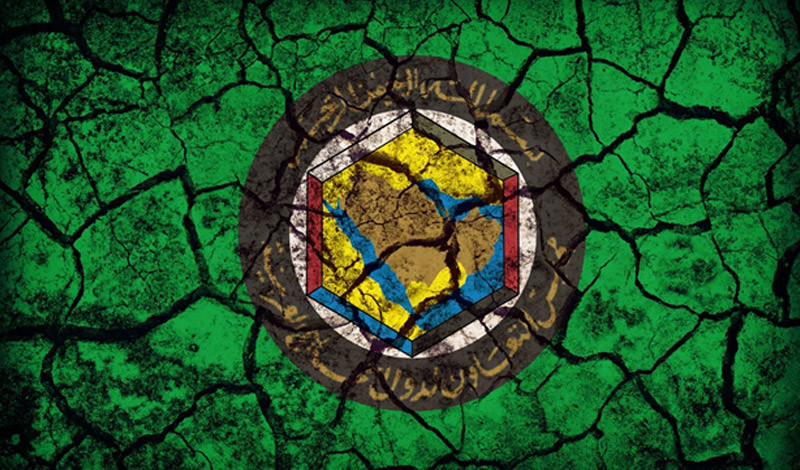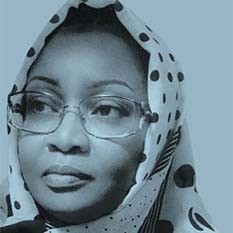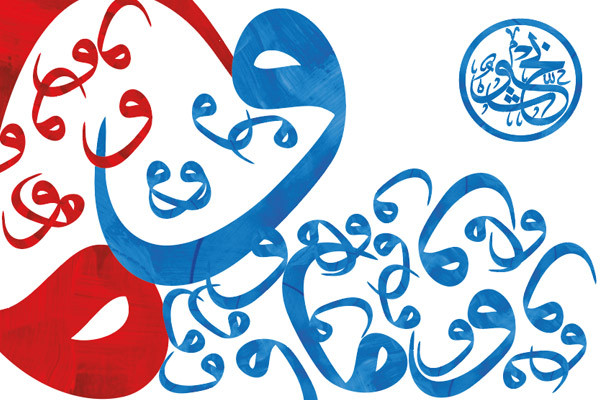The Gulf Crisis: Means to an End
The Gulf Cooperation Council (GCC) has come a long way since its inception. However, despite the objectives established in its charter—the most prominent of which is to effect coordination and integration in all fields in order to achieve unity 1 —the present Gulf crisis has revealed an obvious deficiency in the mechanisms for mending the rift between the member states.

- by Dr. Sumaya Adam Eisa ,
- Thursday, 19th October, 2017
Established in 1981 after the First Gulf War between Iraq and Iran, the GCC consists of six-member states: the Kingdom of Saudi Arabia (KSA), Sultanate of Oman, United Arab Emirates (UAE), Kuwait, Qatar, and Bahrain, which are located on the Arabian Gulf. The GCC headquarters is in Riyadh. 2 The GCC has laid foundations of cooperation between member states in a variety of areas, including legal and judicial cooperation, implementing cooperation in family counselling and guidance, preserving integrity, countering corruption, and such matters. 3
Dr. Abdul Khaliq Abdullah, an Emirati academic and political science professor at the United Arab Emirates University, commented on the present crisis, saying, “The rift of 5 June has negatively affected the image of the GCC. It also disrupted its activities, suspended its meetings, and destabilized state integrity. The crisis has also extended to the fabric of Gulf society, which has always been immune from political Gulf conflicts. Now, the Gulf structure, once a model of stability, has become rife with tensions that do not seem to have an end in sight” (CNN Arabic). 5
Dr. Abdullah Medani (2014), a Bahraini researcher and lecturer, stated in the Asharq Al-Awsat newspaper that “integration and coordination between geographically, historically, politically, economically, socially and culturally similar regimes is the ideal way to unity”. He also called for the formation of a committee for the settlement of disputes in the GCC in order to solve conflicts between Gulf states.6
Although dreams of achieving Arab unity have been doomed to failure, the GCC has been considered the spark that lit a desire to establish the foundations of unity, strengthening the ties of cooperation that began so long ago, the most significant of which is the successful UAE. Since its establishment, the GCC has constituted an effective platform for the six-member states to discuss and formulate common diplomatic stances. It has also contributed to the demarcation negotiations between member states, although some states eventually resorted to bilateral negotiations, or to some forms of international mediation (Legrenzi, 2014: 23).
The GCC has spared no efforts in defending the member states against external threats and allegations. The GCC supported the UAE’s stance in its long conflict with Iran concerning the three islands of Abu Musa, Greater Tunb, and Lesser Tunb, which were occupied by Iran days before the declaration of the federation of the United Arab Emirates in 1971 (p. 8).
Why, then, has the GCC failed to solve the problem of disagreement within Gulf society until now? The GCC should have prepared detailed studies based on cultural sensitivities and historical facts, as well as benefited from its legal committees and from internal and external relations, in order to develop scenarios acceptable to all parties. Mechanisms to provide early warnings of disputes and to settle them should be developed in order to put matters right before the situation worsens. Settlement of disputes requires full knowledge, an integrated legal and arbitration mechanism, and highly efficient individuals in order that business, transport, and common interests between the parties will not be affected. 8
This question requires various forms of research. Dr. Matteo Legrenzi, Associate Professor in International Relations in Ca’ Foscari University, Venice, President of the Italian Association for Middle Eastern Studies, indicated that the GCC is insufficiently qualified to serve regional institutional goals. He considers the Council a hollow structure that aims, primarily, to present an image of unity and to promote Gulf identity rhetoric, while excluding other entities.
The GCC does not lack resources or experience. In most cases, mediation and appeasement, together with containment policies, have succeeded in reuniting Gulf states and bringing about reconciliation. The GCC was able to contain the conflict that began in March 2014, which led to the withdrawal of KSA, Bahraini, and UAE ambassadors from Qatar. The situation returned to normal in November that year after the government of the state of Qatar declared its compliance with what had previously been established in the GCC.10 Friendly ties have remained in place between Gulf states ever since.
The burning question that arises, then, is: What’s new this time? Some observers think that the situation that led to the “outbreak of the present Gulf crisis yet again has been building up for a while between the state members. The most significant reason cited by the boycotting states is “Qatar’s support of extremist groups, its support of Iran against other Gulf states and its pursuit to destabilize the boycotting states and incitement.”11 However, one can see from the prolongation of the crisis, that the problem perhaps lies at a deeper level, leading to the failure of some observers to diagnose the situation accurately!
Researchers believe that real winds of change have started to blow through the GCC states. Dr. Medani observes that “the rift is a result of American and European pressures in Gulf affairs, Iran’s expansion policies against Gulf states, sowing the seeds of abhorrent sectarianism, and incitement against ruling Gulf regimes by political Islam groups”.12 Dr. Christopher Davidson also referred to the dangerous impact of globalization on political, social, and cultural systems (2005: 253), especially with the increase in population and reduction of oil prices (Kamrava, 2006).
Leaders of GCC states have always taken pride in their rule of the only part of Eurasia that has been free from war in the last 70 years (Legrenzi, 2014: 7). The Gulf, with its lavish economic prosperity, has not been exposed to the Arab nationalist movements and extremist ideologies that engulfed other Arab states during the 1950s and 1960s. Notwithstanding the Dhofar Rebellion that started south of the Sultanate of Oman in 1965 and lasted for ten years, Gulf societies have each had their own systems of rule and social mores, which limited the influence of the expansion of Arab nationalism and armed revolutions against British colonization (Al-Fares, 2009: 22).13 Other reasons include the small population and the isolation of the region by British colonization. The continuation of traditional and religious regimes and leaderships also contributed to stability, as did the continuity of moderate Islam, which is based on the principle of shura (Arabic for “consultation”). “Transitions of power were achieved smoothly after the British evacuation, and communication channels remained open between rulers and the public” (Khalifa, 1979: 51). 14
The Gulf also was not affected by the Arab Spring that pervaded many Arab countries, though it reached Bahrain and the Sultanate of Oman. 15 Although the GCC realized the threat and invited Jordan and Morocco to join, the power of stability and conservatism in Arab Gulf states outweighed the power of change (Abdullah, 2013). 16
Nevertheless, the Gulf states did not survive certain negative impacts.17 In fact, the side effects of the Arab Spring, its repercussions, and the resultant effects cannot be underestimated.
The parties involved should not pin their hopes on the West. Many articles in Western newspapers suggest that the solution should begin domestically. Washington takes the view that solution should be within Arab countries. In addition, it is futile to expect that pessimistic sentiments, together with social media posts and tweets, will yield tangible results in this regard.
The present conflict undermines the dreams of many. The oil revolution in Gulf states has made the Gulf a destination for most Arab peoples. Remittances have contributed to prop up the economies of many countries. The region contains large oil and gas reserves, which are vital to all the major countries of the world and for securing energy for the world in the foreseeable future.19 The importance of the Gulf region lies in its strategic location and religious status. Muslims from locations worldwide visit the holy sites every year. It is anticipated that Muslims will represent 30% of the total world population by 2052 (Legrenzi, 2006). 20
However, the greatest advantage of the present conflict may be the realization of the significance of structuring the GCC so that it can cope with the level of development achieved by its states and be able to put in place appropriate mechanisms to counter the threats faced within. The disputing countries’ adherence to the GCC so far is of great significance.
The structuring of the GCC needs time, and we cannot hope for a miracle. Due to this conflict, valuable time is being wasted. Therefore, hope is pinned on the elite, with their experience in mending the social conflict—unsurprising, as the Gulf states have always been linked by family and blood ties, and business relationships.
It is important that the Gulf states stay united as the specter of the increasing economic and political crises haunts the region, and also at a time when the Muslim world has not witnessed scientific innovation since the seventeenth century.21 The fine line that such states adhered to between their cultural heritage and Islam, ancient traditions, and the technological revolution has served as a lifeline, so far.

Dr. Sumaya Adam Eisa
Researcher, GLOBAL AFFAIRS DEPARTMENT (FORMER)
Read More
Areas of Expertise
- Writing
- Research
- Editing
- Translation
Education
- PhD, Fictional Genre Translaion
- M. A. in Translation & Interpretation, American University of Sharjah, UAE
- B. Sc. In Rural Economics, University of Khartoum, Sudan
Bio
Skilled writer dedicated to work to high standards with extreme commitment to meet deadlines and assure output accuracy. A dynamic experienced translator, translated for the FAO and other regional and international organizations. The Sole Author of Fisheries and Marine Science Dictionary, English-Arabic, the first of its kind in the Arab world. CEO and Founder of TBLT, Khartoum, the Translation Firm which translated the Legislation of the State of Qatar. Has great experience in the fields of scientific research, business and technical writing and translation. In addition to translation of hundreds of economic, administrative and scientific reports and studies. Volunteered in women and other non-governmental associations.

